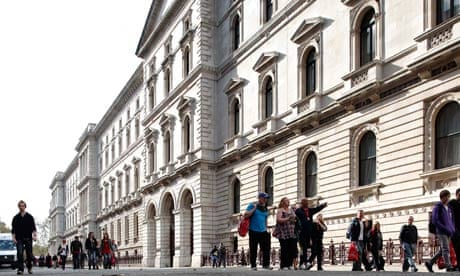Two asylum seekers who were deported to Baghdad and claim they were tortured on arrival by Iraqi officials have been returned to Britain because they were found not to be Iraqi.
The confusion over the men's nationality and the allegations they have made are among admissions made by the Foreign Office in a letter to the European court of human rights (ECHR) arguing for a resumption of removals to Baghdad.
In October, the Strasbourg court ruled that deportations to Baghdad should be suspended because of the upsurge in violence in the Iraqi capital.
That decision, according to refugee groups, was not immediately publicised by the Home Office or made known to Iraqis who could have avoided being removed.
Amnesty International today called on European governments to halt forcible deportations to Baghdad and respect the court's decision.
It also said it was aware of "credible reports of Iraqis being detained on arrival at Baghdad airport ... beaten, deprived of food and threatened by Iraqi security officials whilst in detention after their forcible removal to Iraq".
The Foreign Office letter, seen by the Guardian, shows that the Office of the UN high commissioner for refugees (UNHCR) has repeatedly raised concerns about the alleged ill-treatment of unsuccessful asylum-seekers being transported to the Middle East.
The UK Border Agency, the letter reveals, is investigating a UNHCR complaint about "mistreatment by UKBA staff and escorts on a charter flight to Baghdad" on 6 June.
The agency is also examining a further allegation made by the Iraqi Federation for Refugees (IFIR) about "mistreatment by UKBA escorts" of failed asylum seekers on a later mass deportation charter flight on 6 September.
The Foreign Office letter, sent to the European court on 29 October, explains: "The UKBA is also investigating allegations by two individuals, who were removed on [the] charter flight to Baghdad on September 6th, that they were tortured by the Iraqi authorities while detained in Baghdad.
"The two were subsequently returned to the UK on September 22nd because they were found by Iraqi authorities not to be Iraqis."
One of the men is understood to be an Iranian. He has claimed he was beaten repeatedly.
The government's programme of deporting failed asylum seekers to Iraq has been thrown into confusion since the ECHR ruled, on 22 October, that forcible returns to Baghdad should be suspended immediately because of increased sectarian violence and suicide bombings.
The court's decision allows anyone facing deportation to Baghdad to make an application under its rule 39 provisions. The UKBA has acknowledged: "Where an application has been granted [by the ECHR] under rule 39 measures [emergency objections on the grounds of lack of safety] we will suspend removals."
The court is due to decide on the safety of returns by 24 November.
The security situation in Iraq has deteriorated further this month, and a series of 12 targeted bombings and mortar attacks killed five people in Christian districts of Baghdad today.
An exiled Iraqi cleric in London has urged Christians to flee the country.
European governments have been accelerating removals in response to domestic political demands to curtail immigration. That, in turn, has led to international concern over forcible returns to central Iraq.
The Foreign Office letter to the European court nonetheless concludes, on the grounds that "levels of violence appear to have fallen back again", that "it is safe to return Iraqi nationals who have no legal right to remain in the UK to Baghdad."
In the summer, UNHCR publicly objected to European states, including the UK and Scandinavian countries, sending Iraqis back to the five central governorates, or provinces, including Baghdad.
The agency maintains that the centre of the country is not safe.
Dashty Jamal, of the International Federation of Iraqi Refugees, condemned the decision to remove a charter plane full of unsuccessful asylum seekers to Baghdad on 25 October when none had been informed of their rights to appeal to the ECHR under the rule 39 provisions.
"[The government] is ignoring the European court and not respecting the law of human rights," Jamal said. "European governments want to send people back to a warzone and ignore court rulings."
A UKBA spokesperson said: "The UK Border Agency continues to investigate these allegations [of mistreatment on deportation flights], but the subjects have not yet produced any substantial evidence corroborating their claims.
"We take any allegations of mistreatment of returnees by UK Border Agency staff, their representatives, or receiving authorities, extremely seriously, and they are thoroughly investigated."
Asked why deportees were not informed of the ECHR's rule 39 intervention, UKBA said: "The UK border agency only enforces the return of individuals whom it and the UK courts are satisfied are not in need of international protection.
"Only where an application has been granted by the European court under rule 39 measures will we suspend removal for that/those individual(s).
"All detainees have access to legal representation throughout the asylum process and whilst in detention."
Last week, the home affairs select committee was told there had been 186 complaints from detainees that they had been assaulted by guards.
Three G4S guards have been questioned by police and released on bail following the death last month of Jimmy Mubenga, an Angolan who lost consciousness on a British Airways flight that was preparing to depart from Heathrow.
